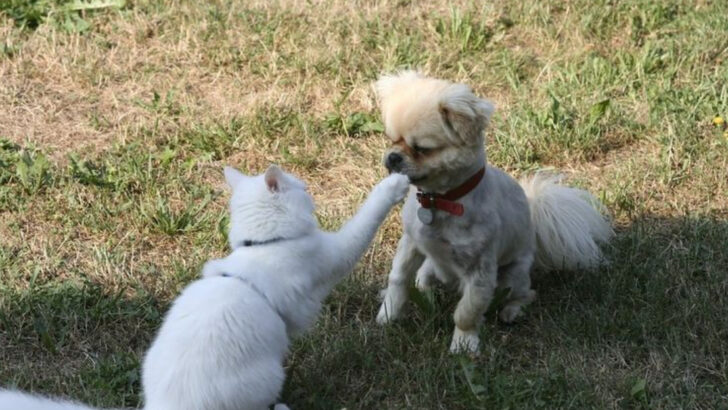Some dogs are natural peacekeepers—others see the family cat as a challenge. If you’re hoping to have both under one roof, the breed you choose matters more than you might think. While some dogs learn to live in harmony with felines, others just can’t resist the urge to chase, bark, or guard their space. Knowing which breeds tend to clash and which ones blend in can save you a lot of stress (and scratched furniture). Every pet has its own personality, but certain traits make a big difference when it comes to cat-dog friendships. It’s all about finding the right match for a peaceful home.
Akita
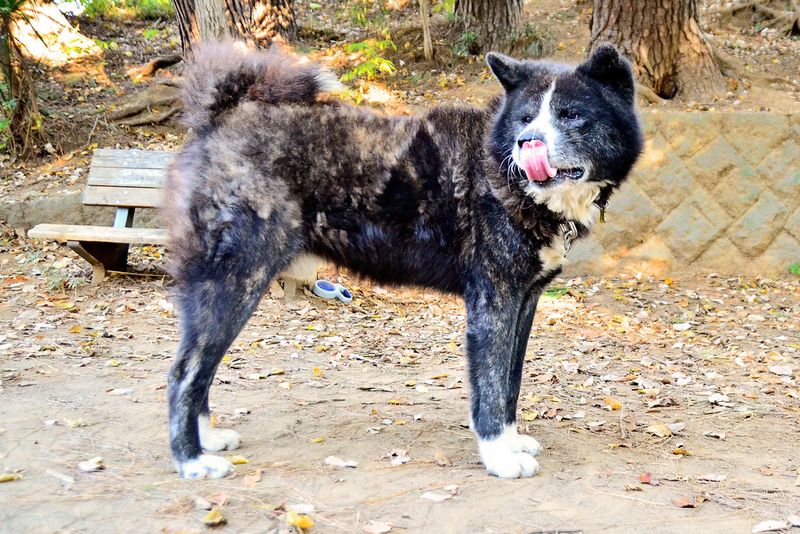
With its roots in Japan, the Akita commands attention with its dignified presence. Historically bred for hunting, this breed has a strong prey drive, making it less compatible with cats. Known for its loyalty and protective nature, the Akita needs proper socialization to coexist peacefully with other animals.
The breed’s independent spirit often means it doesn’t always play well with others, especially smaller animals like cats. However, with early training and a firm hand, some Akita owners have found success in creating harmonious multi-pet households.
Siberian Husky
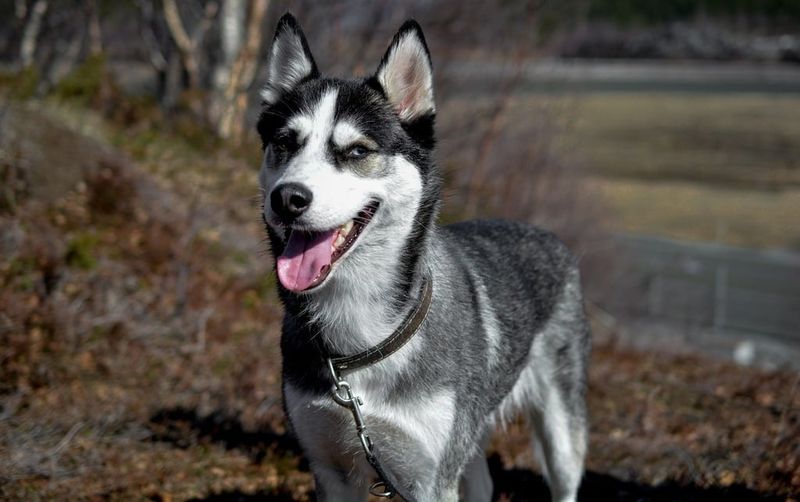
The Siberian Husky, with its striking appearance, is a breed that thrives on adventure and freedom. Bred as a sled dog, it possesses a strong prey drive, often considering smaller animals like cats as game. This can pose challenges in cat-inclusive households.
Huskies are known for their pack mentality, which sometimes clashes with feline independence. While they are friendly and outgoing, their energetic nature and instinctual behaviors require careful management around cats. Consistent training and early exposure can sometimes mitigate these tendencies.
Jack Russell Terrier
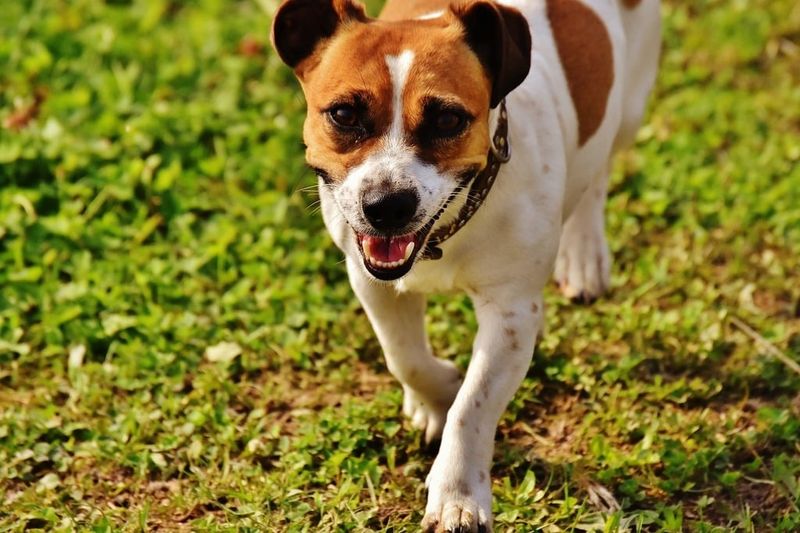
The Jack Russell Terrier, full of boundless energy, is a little dynamo with a big personality. Originally bred for fox hunting, its instinct to chase is deeply ingrained. This trait can create tension in homes with cats, as they may see them as targets for their energetic pursuits.
Despite their small stature, Jack Russells have a fearless nature. Their intelligence and determination require active management to curb their chasing instincts. With patience and training, some owners have successfully integrated them into multi-pet environments.
Weimaraner
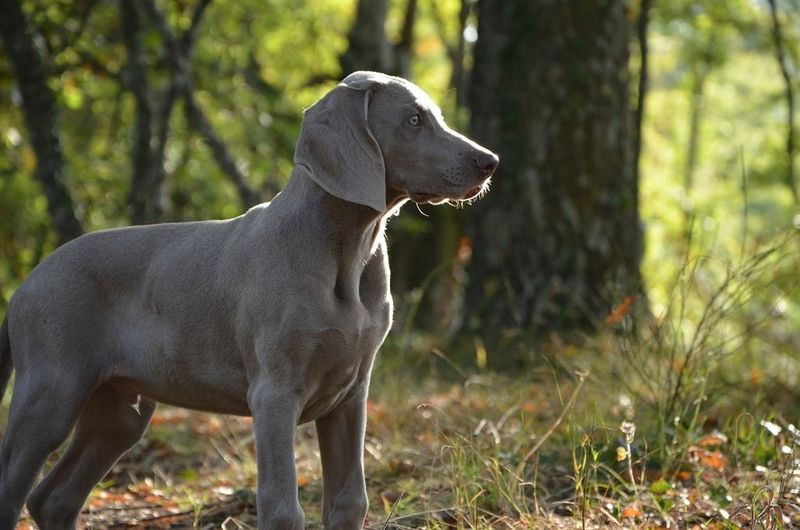
Known as the “Gray Ghost,” the Weimaraner is both elegant and energetic. This breed, originally developed for hunting large game, has a pronounced prey drive, which can be problematic when sharing space with smaller animals like cats.
Their curiosity and strong hunting instincts make them less than ideal companions for felines. However, with structured training and early socialization, Weimaraners can learn to coexist peacefully with cats. It’s their unwavering loyalty and intelligence that endears them to many.
Dachshund
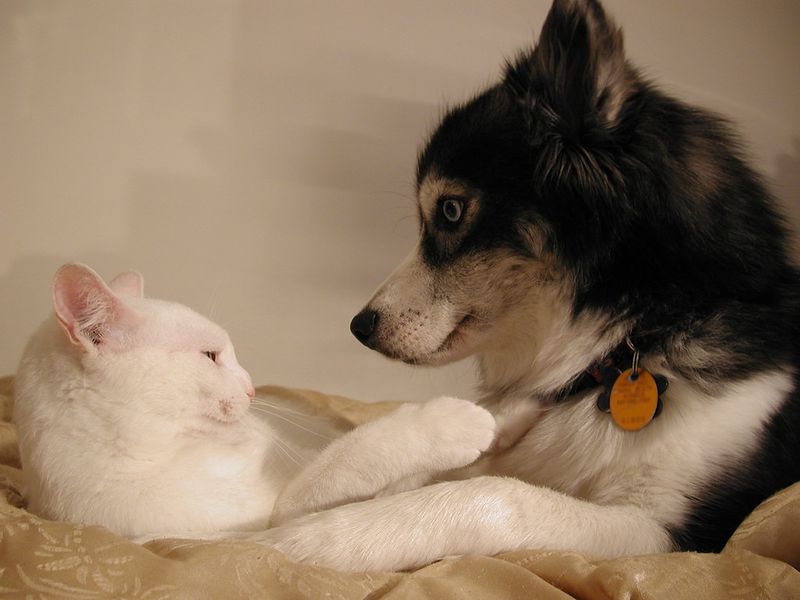
The Dachshund, often referred to as the “wiener dog,” is a small breed with a big heart. Originally bred for hunting badgers, they possess a keen sense of smell and a strong prey drive. This can lead to issues when sharing a home with cats, as their hunting instincts may kick in.
These dogs are spirited and courageous, often unaware of their small size. With consistent guidance and training, Dachshunds can adapt to living alongside cats, though supervision is recommended to ensure harmony.
Shiba Inu
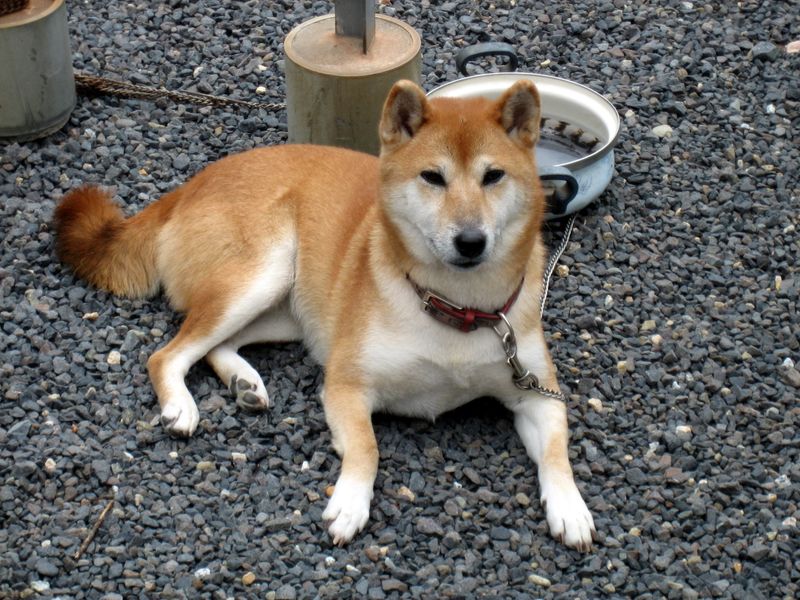
The Shiba Inu, famous for its spirited personality and fox-like appearance, is a breed that values independence. Originating from Japan, they have a natural hunting instinct, which can make cohabitation with cats challenging.
Shibas are known for their aloofness and strong-willed nature. Their territorial instincts can lead to friction with feline housemates. However, with proper socialization from a young age, some Shibas learn to cohabit peacefully with cats, though it’s often a delicate balance.
Australian Cattle Dog
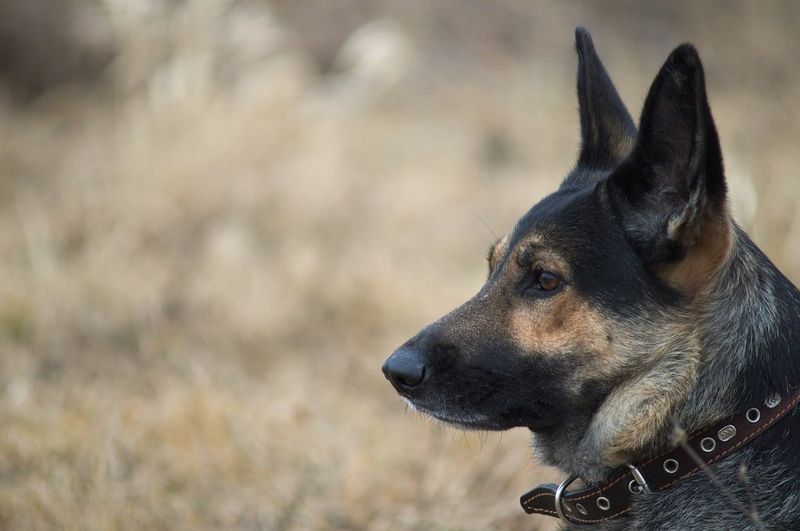
Known for their intelligence and herding instincts, Australian Cattle Dogs are diligent workers with a robust nature. Their strong prey drive and energetic disposition can make them challenging companions for cats.
These dogs are fiercely loyal and protective, traits that don’t always mesh well with feline independence. Early socialization and training can help mitigate their chasing instincts, but supervision is often necessary when cats are around. Their determination and work ethic are truly remarkable.
Scottish Deerhound
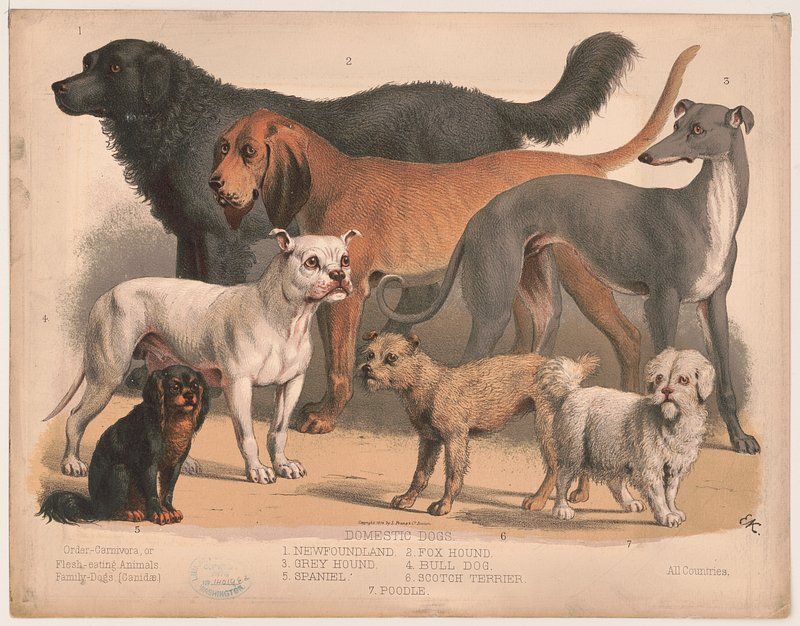
The Scottish Deerhound, with its noble stature and gentle demeanor, seems an unlikely candidate for cat conflicts. However, this breed was historically used for hunting deer, and their prey drive can be triggered by smaller animals, including cats.
Their calm and affectionate nature is balanced by their instinctual drive to chase. With proper socialization and training, Deerhounds can adapt to feline companions, though their size and instincts require careful management. They are elegant and loving, yet require an understanding owner.
Borzoi
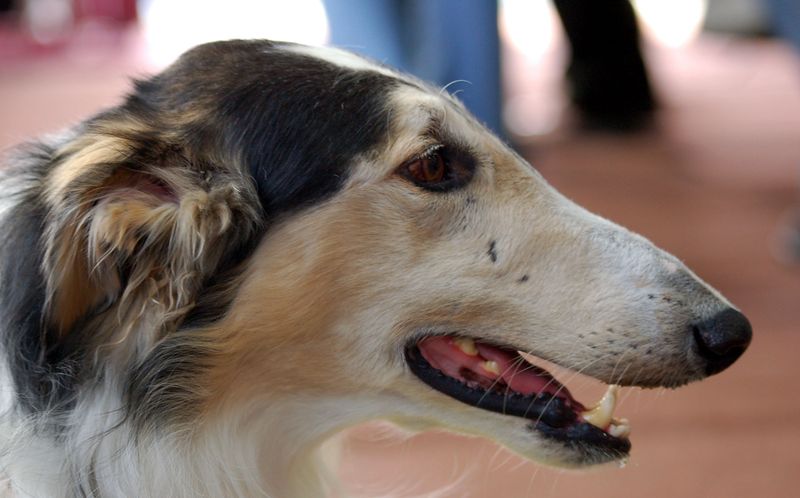
Graceful and dignified, the Borzoi is a sighthound known for its speed and hunting prowess. Historically used for chasing game, their instinct to pursue can be incompatible with cats.
Borzois are known for their calm demeanor, yet their drive to chase makes them a potential threat to feline housemates. Socialization and training from an early age are crucial for a peaceful coexistence. Despite this challenge, they are cherished for their elegance and gentle affection toward humans.
Greyhound
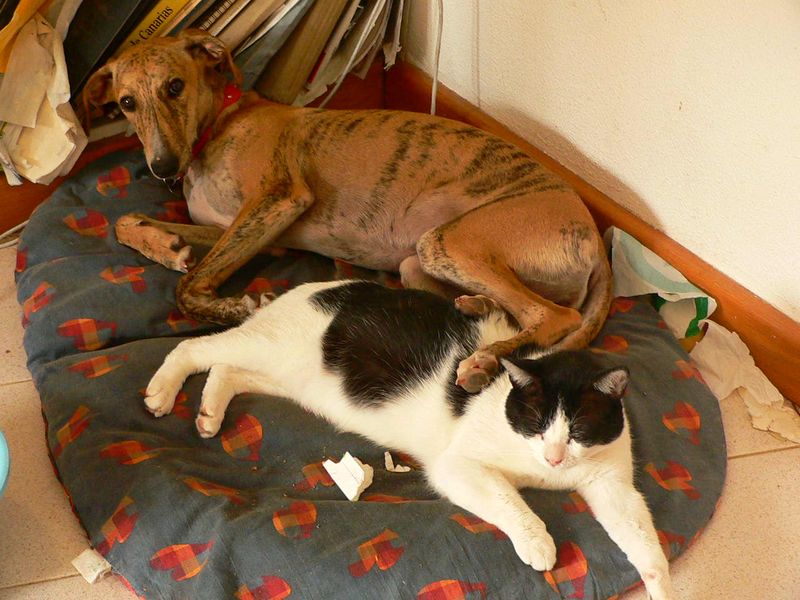
Famous for their speed, Greyhounds were bred for racing and hunting. This background contributes to their strong prey drive, often making them unsuitable companions for cats.
Despite their athleticism, Greyhounds are known for their gentle and laid-back nature. However, their instinct to chase can pose a challenge in multi-pet households. Through careful management and gradual introductions, some Greyhounds can learn to live peacefully with cats. They are gentle giants with a need for understanding.
Doberman Pinscher
With their commanding presence, Dobermans are both protective and intelligent. Originally bred as guard dogs, their strong territorial instincts can make cat relationships tricky.
Dobermans are loyal and require consistent training to manage their interactions with other animals. Socialization from a young age can aid in creating harmony between Dobermans and cats, although supervision is often necessary. Their intelligence and loyalty are admired by many, but their instincts require attention.
Airedale Terrier
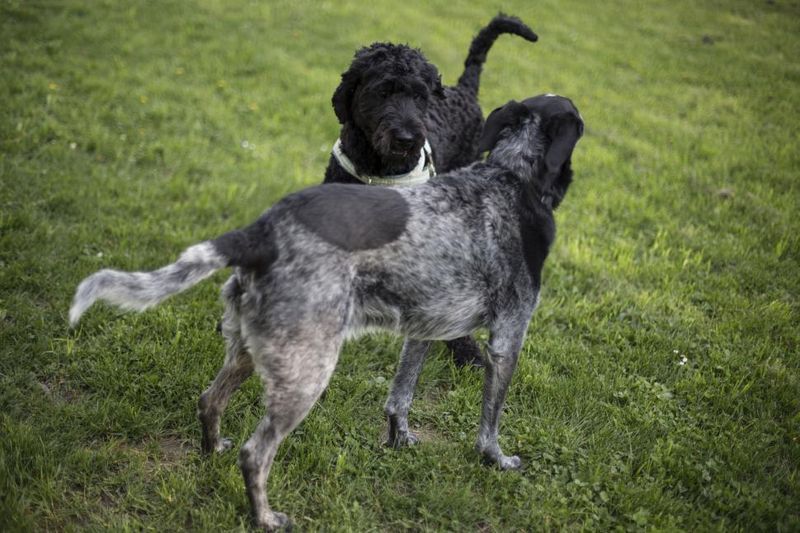
Energetic and inquisitive, the Airedale Terrier is the largest of the terrier breeds. Bred for hunting, their instinctive drive to chase can create tension with cats.
Airedales are intelligent and require engagement to prevent boredom. Their lively nature and curiosity need careful management around cats. With consistent training and supervision, some Airedales can learn to live alongside feline friends, though it often requires patience. Their playful spirit and loyalty are cherished by many.
Basenji
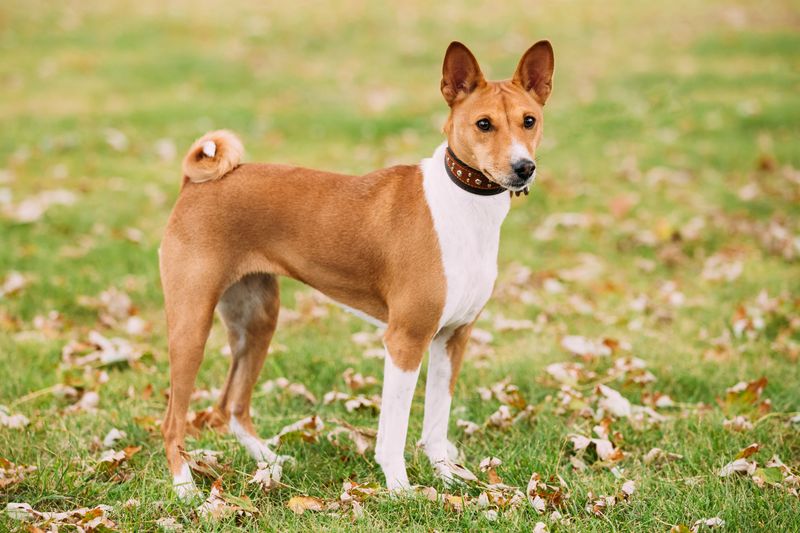
Known as the “barkless dog,” the Basenji is notable for its intelligence and curiosity. Originating from Africa, their hunting background contributes to a strong prey drive, which can pose challenges for cat companionship.
Basenjis are independent and often aloof, requiring careful socialization to adapt to multi-pet households. While they can form bonds with feline friends, their natural instincts mean supervision is essential. Their uniqueness and spirited personality make them fascinating companions.
Newfoundland
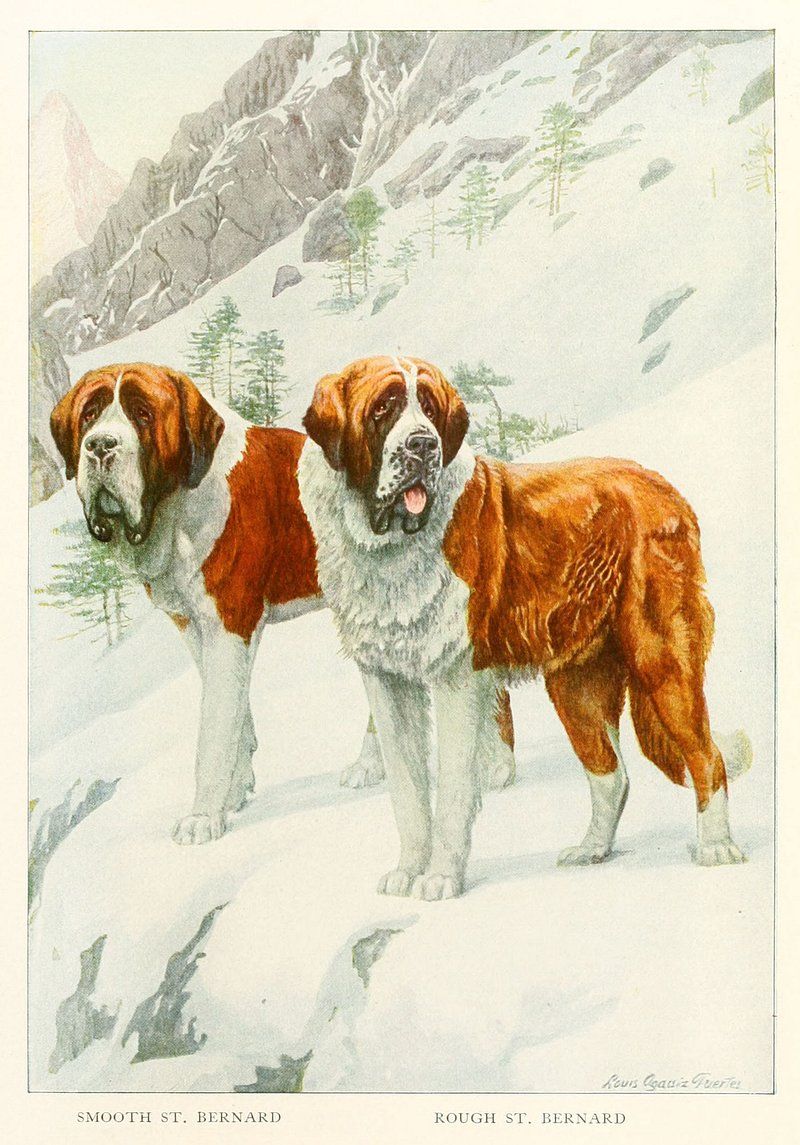
With a heart as big as its paws, the Newfoundland is every child’s gentle guardian. Known for their kind nature, these gentle giants are often very tolerant of cats.
Despite their size, Newfoundlands are gentle and patient, making them excellent companions for felines. Their calm demeanor and friendly nature help create a peaceful multi-pet household. With early socialization, these dogs can form strong bonds with cats, fostering a harmonious living environment.
Golden Retriever
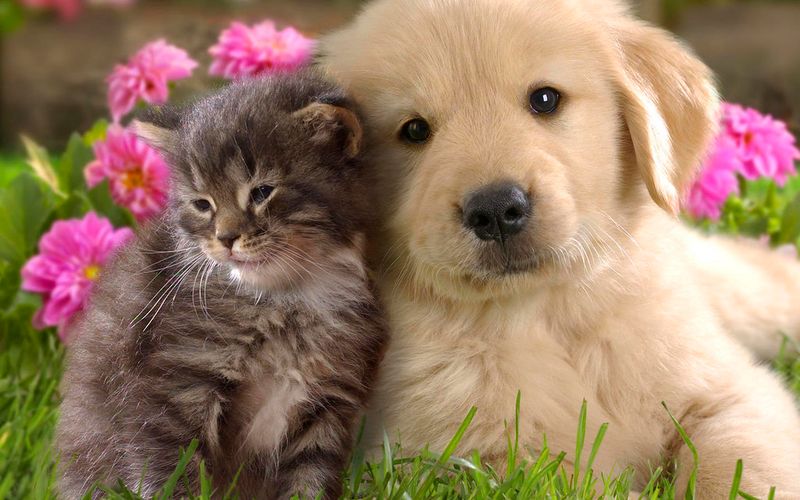
Golden Retrievers embody warmth and friendliness. Their patient nature and love for companionship make them one of the best breeds for living with cats.
These dogs are known for their gentle approach and eagerness to please, traits that help them adapt well to feline friends. With proper introductions and early socialization, Golden Retrievers often form strong bonds with cats, enjoying playful interactions and shared spaces. They are truly amiable companions.
Labrador Retriever
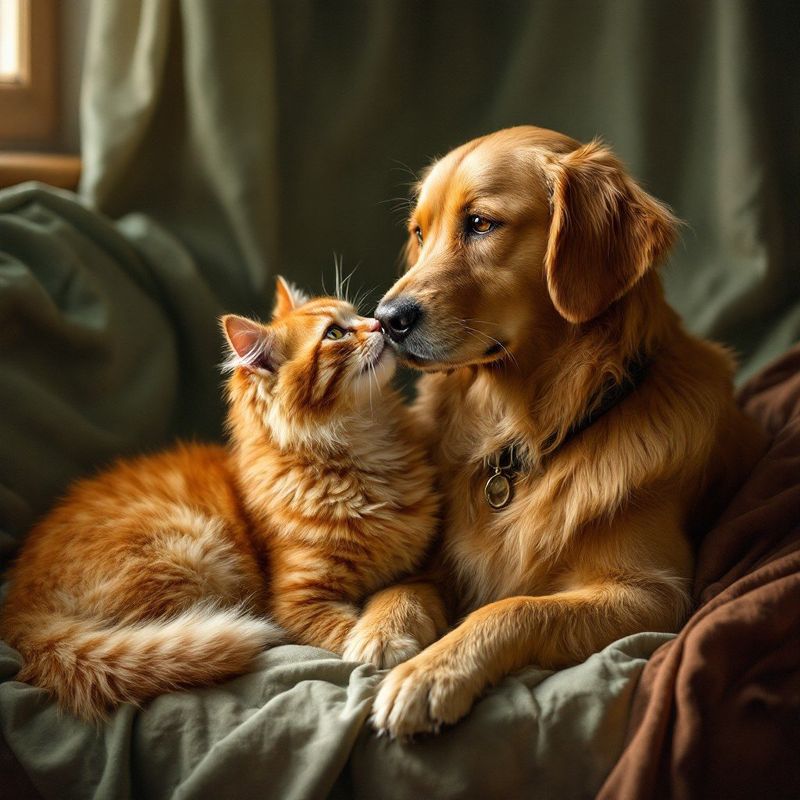
Labrador Retrievers are beloved for their easygoing personalities. Their friendly and sociable nature makes them excellent candidates for households with cats.
Labs are known for their adaptability and eagerness to please, which helps them thrive in multi-pet environments. With gentle introductions and positive reinforcement, they often form strong, lasting bonds with feline friends. Their playful yet calm demeanor is a perfect match for cats, leading to harmonious relationships.
Poodle
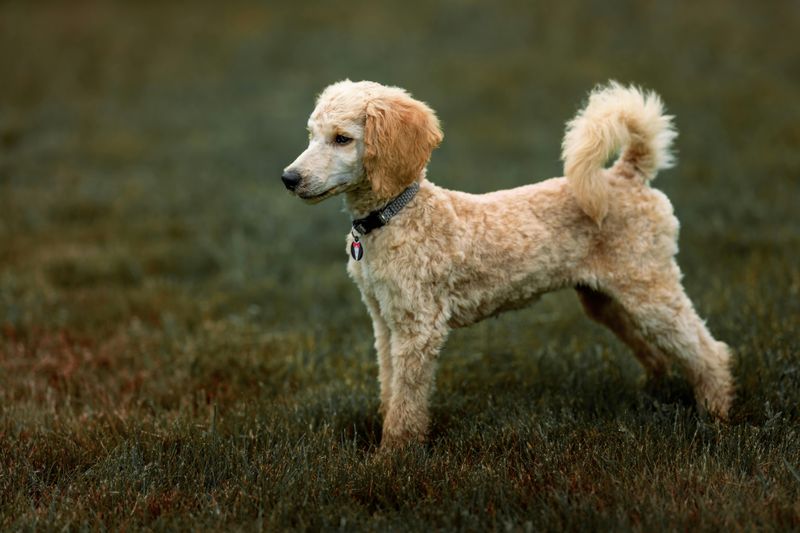
The Poodle, renowned for its intelligence and elegance, is a breed that usually gets along well with cats. Their adaptable nature and desire for companionship make them suitable for multi-pet households.
Poodles are quick learners and can adjust to sharing their space with feline friends. Their playful yet respectful demeanor often leads to positive interactions with cats. With proper socialization, Poodles can be delightful companions for both humans and their feline counterparts.
Bichon Frise
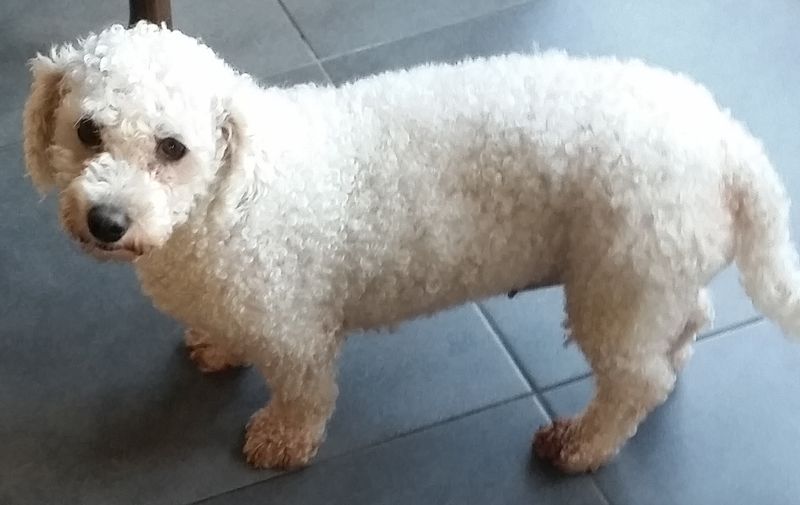
The Bichon Frise, known for its joyful disposition, is a breed that thrives on companionship. Their friendly and social nature makes them great companions for cats.
These dogs are affectionate and gentle, quickly adapting to multi-pet households. Their playful interactions with feline friends are a testament to their adaptable and amiable personality. Early socialization and positive experiences help foster long-lasting bonds with cats, creating a harmonious living environment.
Cocker Spaniel

Cocker Spaniels, with their soulful eyes and gentle demeanor, are renowned for their affectionate nature. This makes them excellent companions for cats.
Their sociable personality and eagerness to please facilitate positive interactions with feline housemates. With early introductions and appropriate socialization, Cocker Spaniels often form harmonious relationships with cats. Their gentle and loving nature is a perfect match for a peaceful multi-pet household.
Cavalier King Charles Spaniel
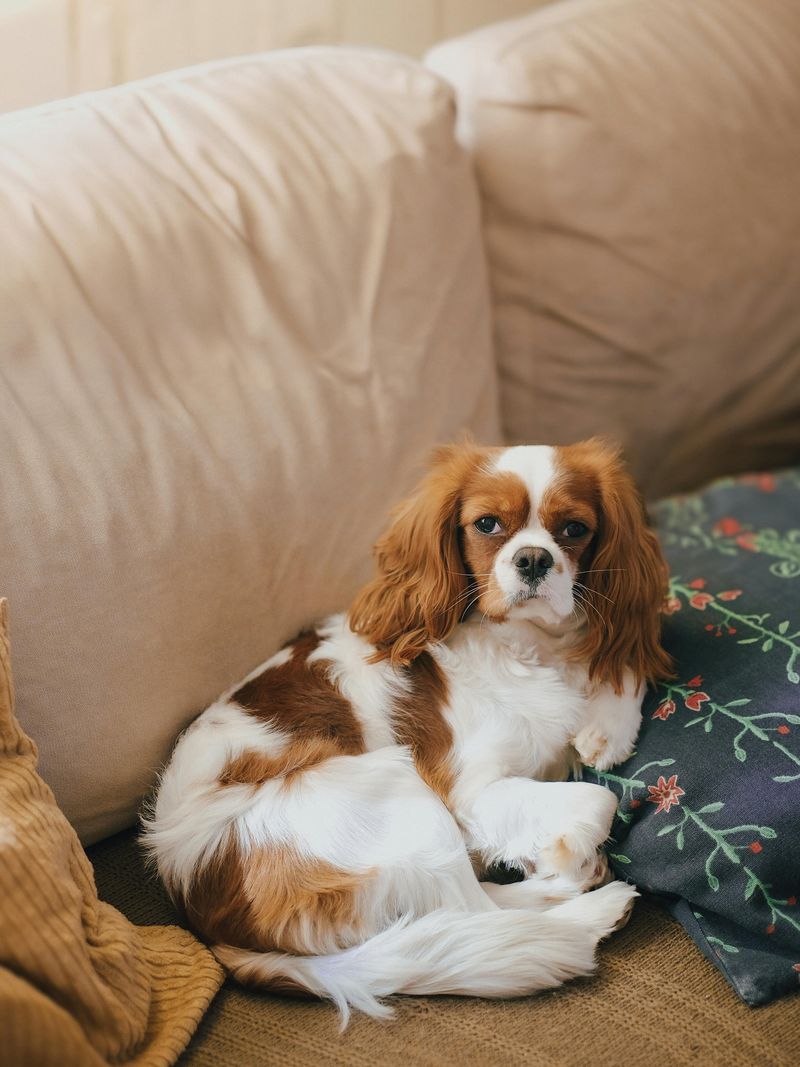
The Cavalier King Charles Spaniel, with its regal appearance and loving temperament, is well-suited to living with cats. Their gentle nature and desire to form bonds make them ideal for multi-pet households.
These dogs are known for their adaptability and friendly demeanor, which often lead to harmonious relationships with feline friends. With early socialization, Cavaliers can enjoy playful and affectionate interactions with cats, fostering a peaceful coexistence.
Beagle
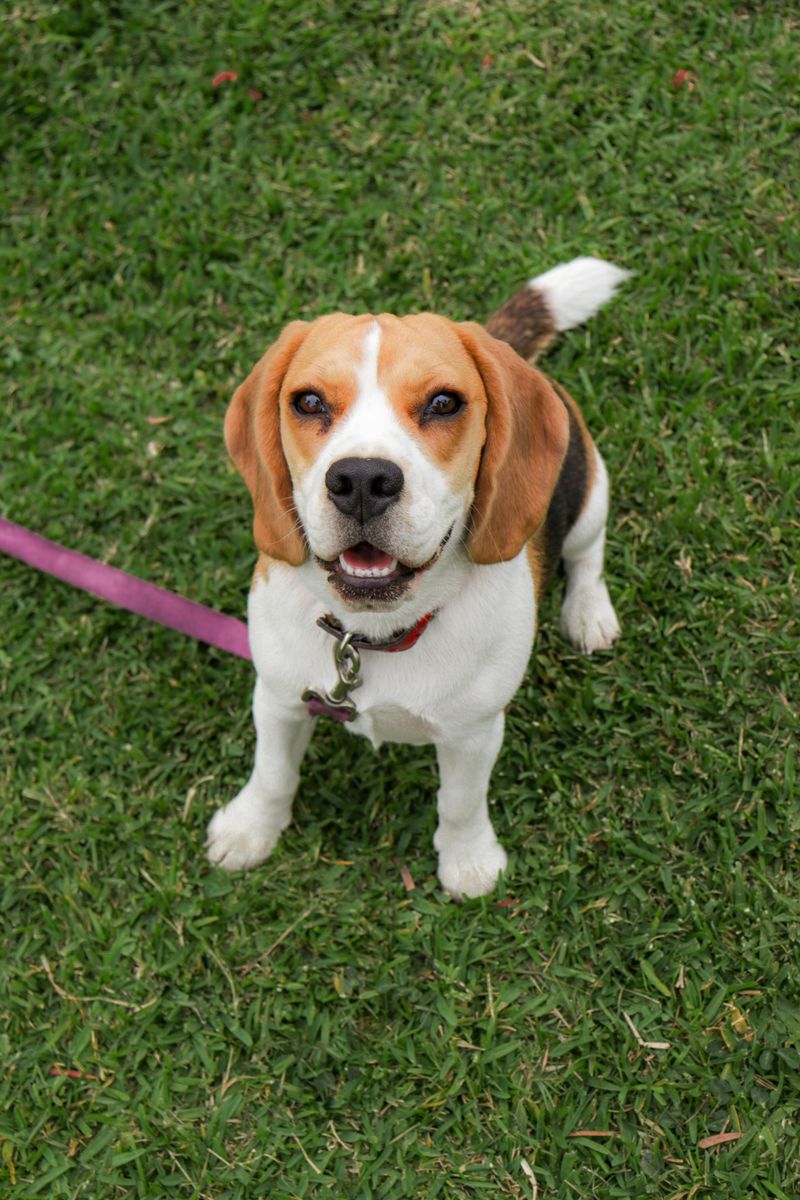
Beagles, with their curious nature and friendly disposition, often get along well with cats. Their sociable personality makes them ideal companions for multi-pet homes.
Renowned for their playful antics and gentle demeanor, Beagles are quick to form bonds. With proper introductions and early socialization, they adapt well to living alongside feline friends. Their affectionate nature and curiosity create opportunities for delightful interactions, resulting in a harmonious environment.
Maltese
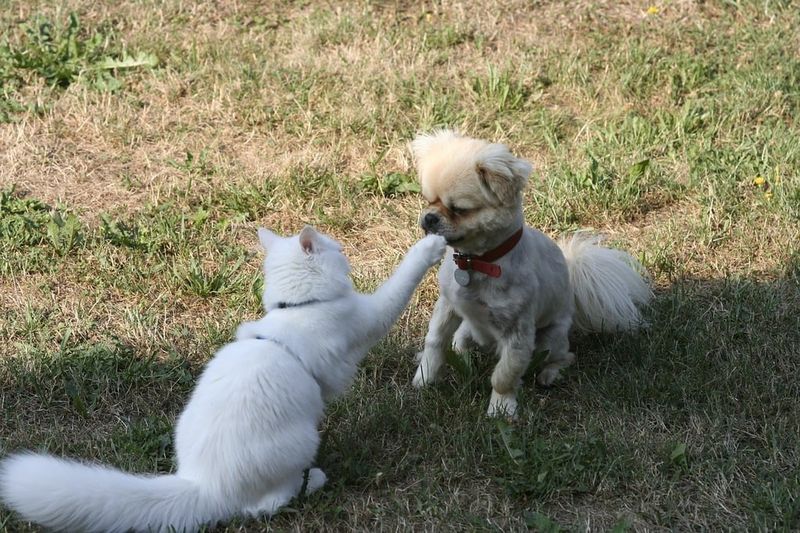
The Maltese, with its affectionate personality and gentle grace, thrives in a multi-pet household. Known for their loving nature, they form strong bonds with cats.
These dogs are adaptable and sociable, often enjoying playful and friendly interactions with feline friends. With early socialization and positive reinforcement, Maltese dogs can coexist peacefully with cats. Their calm demeanor and loving nature make them cherished companions, both for humans and their feline counterparts.
Papillon
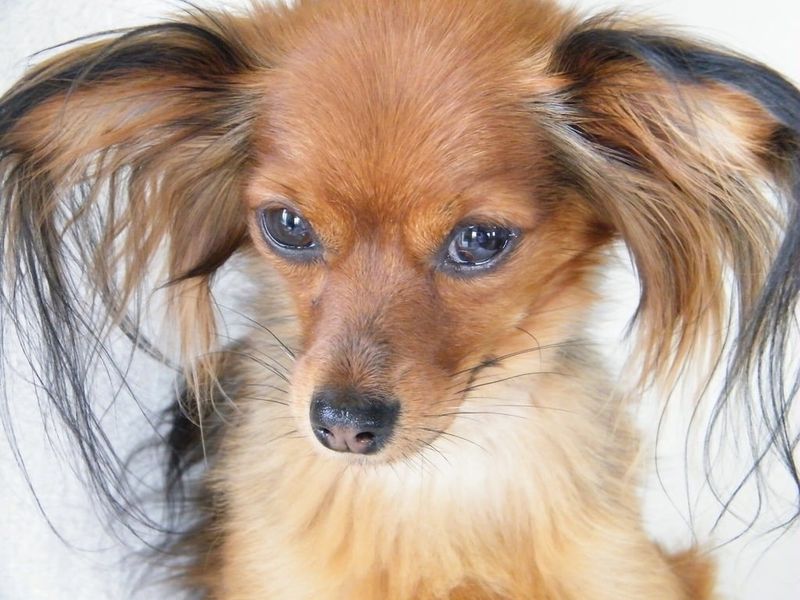
The Papillon, known for its striking ears and lively personality, is a breed that enjoys companionship. Their playful and sociable nature makes them suitable for living with cats.
These little dogs are intelligent and quick to form bonds. With proper introductions and socialization, Papillons often enjoy harmonious relationships with feline friends. Their energetic and friendly demeanor leads to delightful interactions, creating a joyful multi-pet household.

